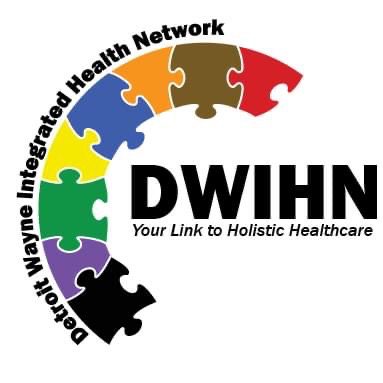Mental health specialists Dr. Hoda Amine and Dr. Shama Faheem share resources, treatments and other effective ways to prevent and combat mental health struggles.
Faheem is a board certified adult and child psychiatrist and the chief medical officer for the Detroit Wayne Integrated Health Network (DWIHN).
She shared that mental illnesses are the most prevalent health issues in the United States, with 50 percent of the entire population expected to experience and be diagnosed with a mental illness in their life.
“One in five Americans experience a mental illness in a given year,” she said. “One in five children currently or at some point have a serious debilitating mental illness and one out of 25 live with a serious mental illness like schizophrenia or bipolar disorder or major depression.”
There is no single cause for mental illness, Faheem said, but there are individual factors that can collectively induce or worsen a mental health disorder. These factors include one’s biological and genetic makeup, one’s behavior and thoughts, trauma, abuse or even the subjection to a chronic medical disease.
“There’s a biopsychosocial model where you have biological genes and genetic predispositions along with the psychological piece of it like your thoughts, your feelings and your behaviors that influence your health,” she said.
She also mentioned that certain elements like drugs, alcohol and “your feelings of loneliness, isolation, self-esteem” can exacerbate mental illnesses.
Individuals can combat mental health disorders in several different ways and Faheem shared the importance of taking care of yourself. Self-care approaches can comprise exercise, walks to boost mood, maintaining a healthy diet, getting an adequate amount of sleep every night and implementing relaxation activities such as meditation or breathing techniques into one’s daily life.
She said to try and incorporate self-care practices to help overcome mental health struggles; and if that isn’t helpful then to seek professional help.
Detroit Wayne Integrated Health Network offers services for mental health, substance use, emotional disturbances and other areas that involve treating mental health conditions.
Wayne County residents seeking help can call the DWIHN access line at 1-800-241-4949. This is available 24/7. Faheem also suggested people visit the DWIHN website at dwihn.org for additional resources and an online screening tool. This tool is a confidential survey that asks questions to identify certain areas of concern regarding one’s mental health and provides resources based on the results.
Although the conversation surrounding mental health has improved in recent years, Faheem said that there has been an increase in mental health disorders in Wayne County.
“From 2020 to 2021, we saw an increase in the severe mental illness population where we serving around 41,000 in 2020 and in 2021 we served 44,000,” she said.

Detroit Wayne Integrated Health Network logo
Photo: DWIHN Facebook
Seeking help is a sign of strength, not a weakness, which is an important thing we have to keep in mind. – Dr. Shama Faheem, psychiatrist and DWIHN chief medical officer
Amine has a master’s degree in social work and a PhD in counseling. She has her own practice in Dearborn and has worked in mental health for more than 37 years.
She told The Arab American News that mental health issues have worsened because of the COVID-19 pandemic. She said that it has lead to individuals feeling more uncertain, leading to the development of phobias.
She shared some ways to tackle mental health struggles, including educating yourself if you can and equipping yourself with a certain level of understanding regarding the issue you are facing as well as seek professional help.
“It’s very important to talk to a specialist, not to somebody who is just next of kin, because as much as they love you, they’re not going to give you the proper treatment or the proper approach,” she said.
Seeking professional help, she said, is important not only for proper guidance, but it also gives individuals an unbiased perspective and listening ear.
“There is nothing wrong with seeking somebody whom I call expensive friends, somebody who’s neutral, they can listen to you, they can help you, they can put things into perspective, they can help you learn how to deal with issues that you never learned to identify before,” Amine said.
“Expensive friends” is Amine’s reference to professional help: Mental health specialists, certified therapists and counselors.
She also shared that identifying one’s triggers in terms of what is making them feel anxious or depressed is a beneficial step in gaining control over their mental state.
Both Faheem and Amine shared the importance of seeking professional help especially if personal approaches like self-care are not working.
“Seeking help is a sign of strength, not a weakness, which is an important thing we have to keep in mind,” Faheem said.
You can visit https://dwihn.org for services and resources DWIHN offer for those struggling with their mental health.






Leave a Reply